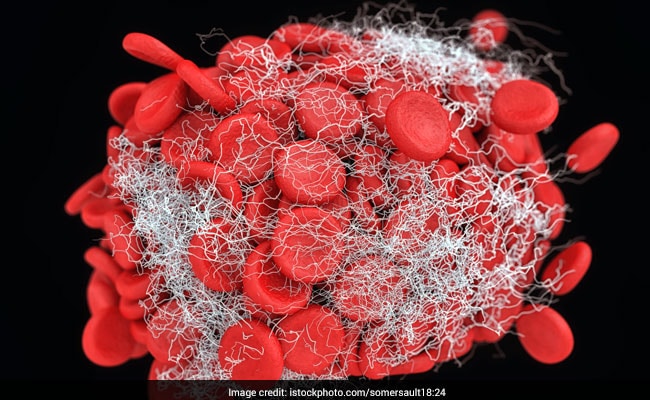World Thrombosis Day is observed annually on October 13th to raise global awareness about thrombosis, a condition in which blood clots form inside blood vessels, potentially leading to serious complications such as deep vein thrombosis (DVT), pulmonary embolism (PE), or strokes. The day is dedicated to improving public understanding of the causes, prevention, and management of thrombosis, emphasising its link to life-threatening conditions like cardiovascular disease. Below we discuss the history and significance of this day. We also share tips to help you reduce your risk of blood clots.
History
World Thrombosis Day was established in 2014 by the ISTH in honour of the birthday of Dr. Rudolf Virchow, a pioneering 19th-century German physician who first recognised and described the mechanisms of thrombosis. His work on blood clots laid the foundation for the field of vascular medicine. The initiative seeks to address the significant public health challenge posed by thrombosis, as it is a leading cause of death and disability worldwide.
Significance
The significance of World Thrombosis Day lies in its focus on preventing preventable deaths and complications from blood clots. Many people are unaware of the risk factors associated with thrombosis, including prolonged immobility, surgery, cancer, and certain medications. Raising awareness helps people recognise symptoms early, seek timely medical intervention, and adopt preventative measures. By encouraging education on risk reduction, World Thrombosis Day contributes to reducing the global burden of thrombosis and promoting healthier lifestyles.
Tips to reduce the risk of blood clots
- Regular physical activity improves blood circulation, which helps prevent the formation of blood clots. Activities like walking, swimming, or cycling enhance vascular health and reduce the risk of deep vein thrombosis (DVT).
- Being overweight or obese puts extra strain on the circulatory system, which increases the risk of thrombosis. Excess fat can also cause inflammation, which can disrupt blood vessels and promote clot formation.
- Dehydration can thicken the blood, making it more likely to clot. Drinking plenty of water throughout the day keeps blood flowing smoothly, reducing the risk of clotting. Hydration is especially important during travel or periods of immobility.
- Sitting or standing for extended periods without moving can cause blood to pool in the legs, increasing the risk of DVT. If you're at risk of blood clots or have a sedentary job, take frequent breaks to move your legs and stretch.
- Smoking damages blood vessels and increases the risk of clot formation. Nicotine and other chemicals in cigarettes cause inflammation in the blood vessels, promoting the development of clots.
- High blood pressure and cholesterol levels can damage blood vessels, making it easier for clots to form. Controlling these risk factors through medication, a heart-healthy diet, and regular exercise reduces the risk of blood clots.
- For people at high risk of blood clots, such as those with atrial fibrillation, certain cancers, or recent surgeries, doctors may prescribe blood thinners (anticoagulants) to prevent clot formation.
- Compression stockings are specially designed to apply gentle pressure to the legs, improving blood flow and reducing the risk of clots, especially in people prone to DVT or those recovering from surgery.
- A family history of blood clots or clotting disorders like Factor V Leiden increases your risk of thrombosis. Understanding your genetic predisposition allows you to take proactive measures to reduce risk.
Follow these tips to reduce your risk of blood clots.
Disclaimer: This content including advice provides generic information only. It is in no way a substitute for a qualified medical opinion. Always consult a specialist or your own doctor for more information. NDTV does not claim responsibility for this information.

